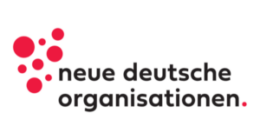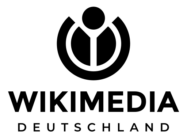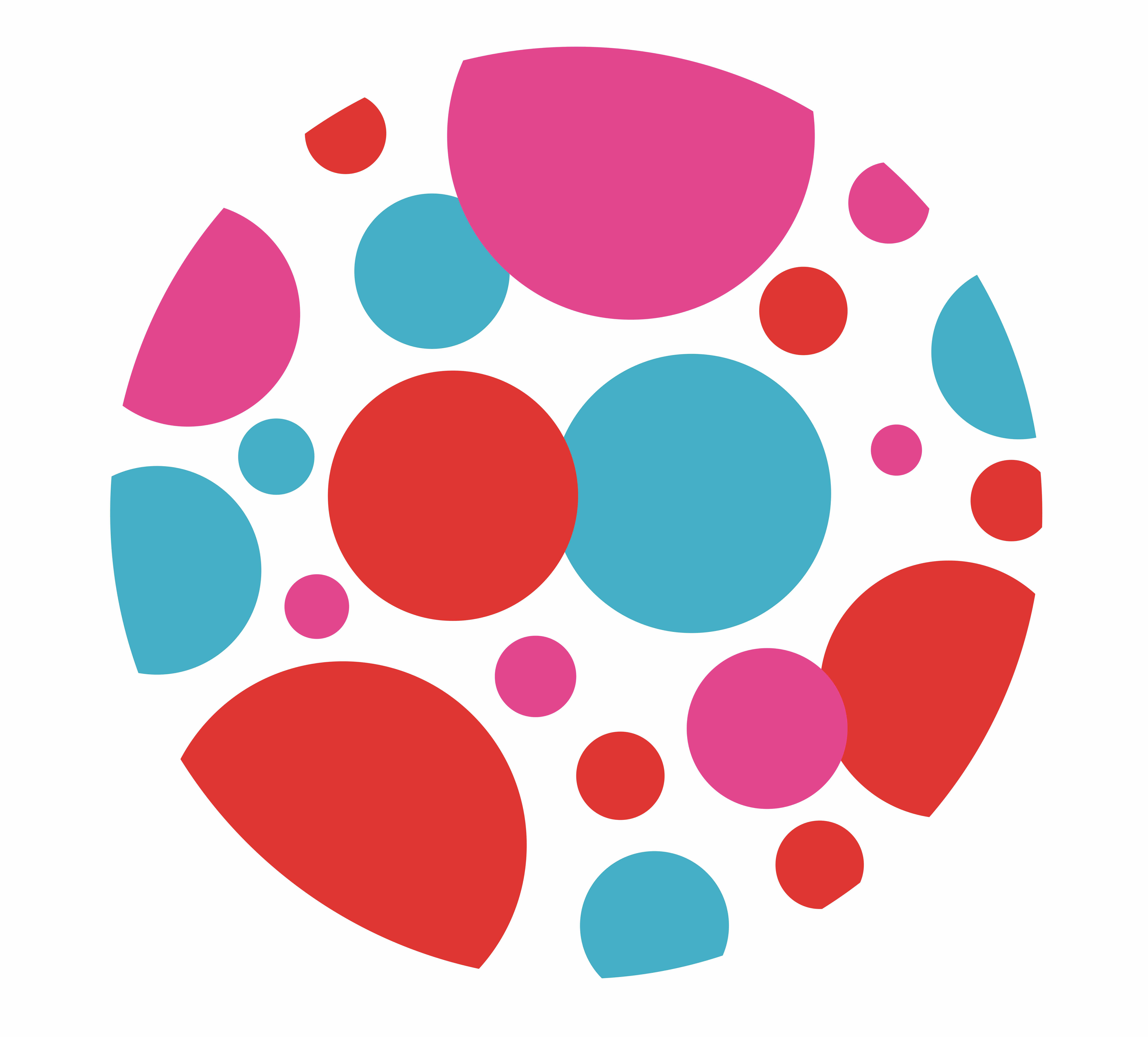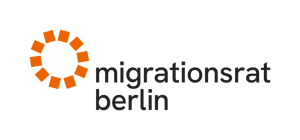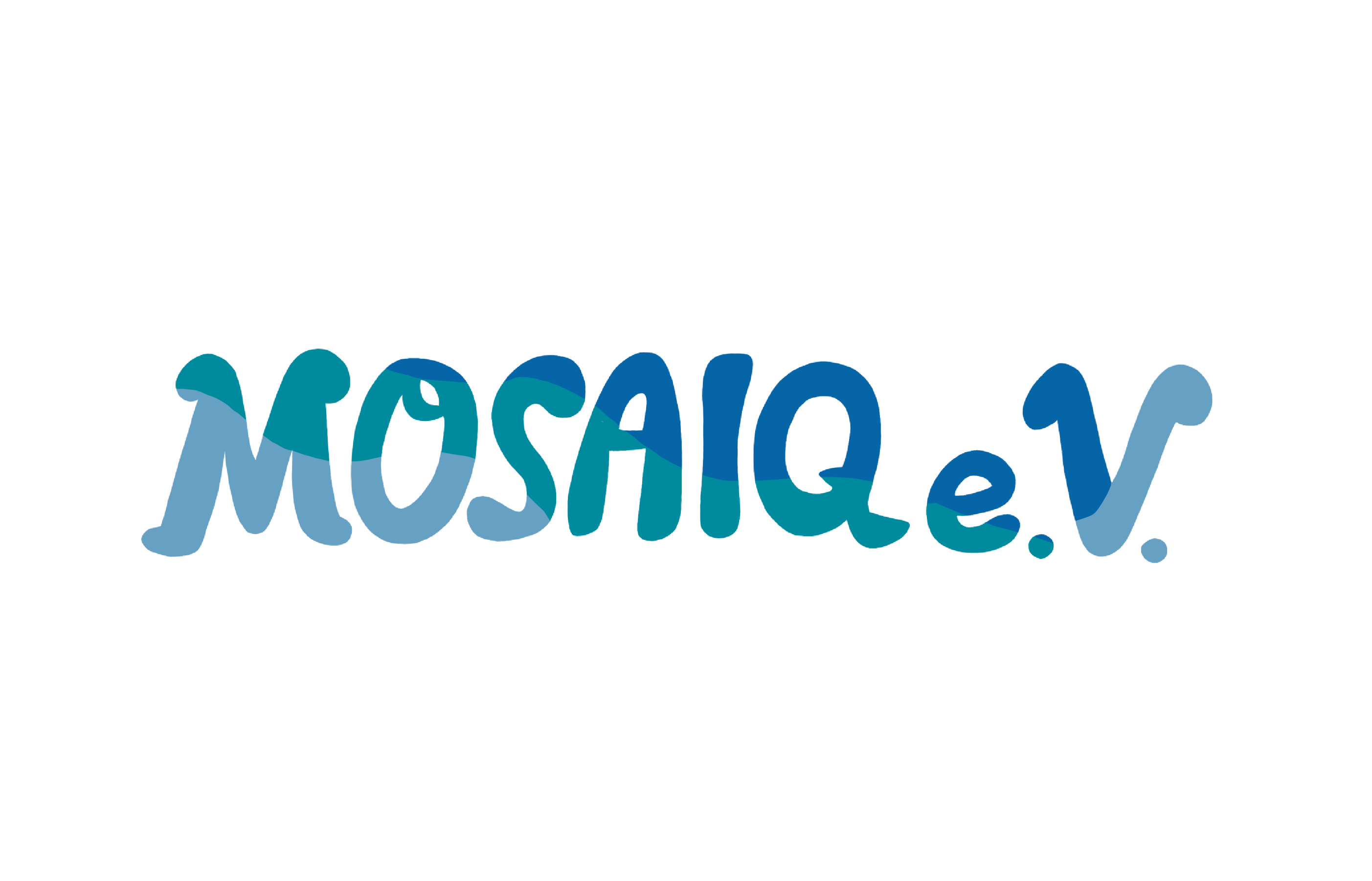Program team
The program team at Wikimedia Deutschland consists of five people – Riham, Anna (on parental leave), Jasmin, Cin, and Chris. Together, we work on the program and are supported by staff from Wikimedia Deutschland, such as the event team, the finance department, and the communications department.
We are a majority white team in a white organization. That said, we bring a range of different positionalities, lived experiences and privileges or experiences of discrimination to the table. We want to improve our awareness of structural forms of discrimination and to break down discrimination. We have therefore decided as a team to undergo a supervised learning and reflection process on the subjects of discrimination, marginalization and racism. During this process, we will reflect on established practices and develop new approaches that will aid us in working with marginalized knowledge in a manner that interrogates discrimination. However, we are aware that this does not guarantee we won’t make mistakes. Until May 20204 we have been accompanied and supported through this learning and reflection process by Dr. Andrés Nader.
Our goal is to work towards greater equity in Free Knowledge. As a team, we want to contribute to marginalized knowledge becoming Free Knowledge in spite of barriers and to play a role in supporting and encouraging people in this endeavor. Consequently, our aim with re·shape – A Wikimedia program to support knowledge equity is to create a space that will offer people and communities who are affected by racism resources and room to engage with Free Knowledge and Free Knowledge platforms.
Riham (she/her) and Jasmin (she/her): We are your points of contact throughout the program and are in charge of the content of re·shape – A Wikimedia program to support knowledge equity. We are more than happy to answer any questions you might have about the application process and the program. In collaboration with a jury, one of us will also be involved in the project selection. During the program period, we will work especially on the design of the non-material support and the planning and execution of events.
Cin (they/them or no pronouns) and Chris (he/him): We take care of everything related to budget and finances and are also involved in organizational tasks, material creation, and event planning and execution.
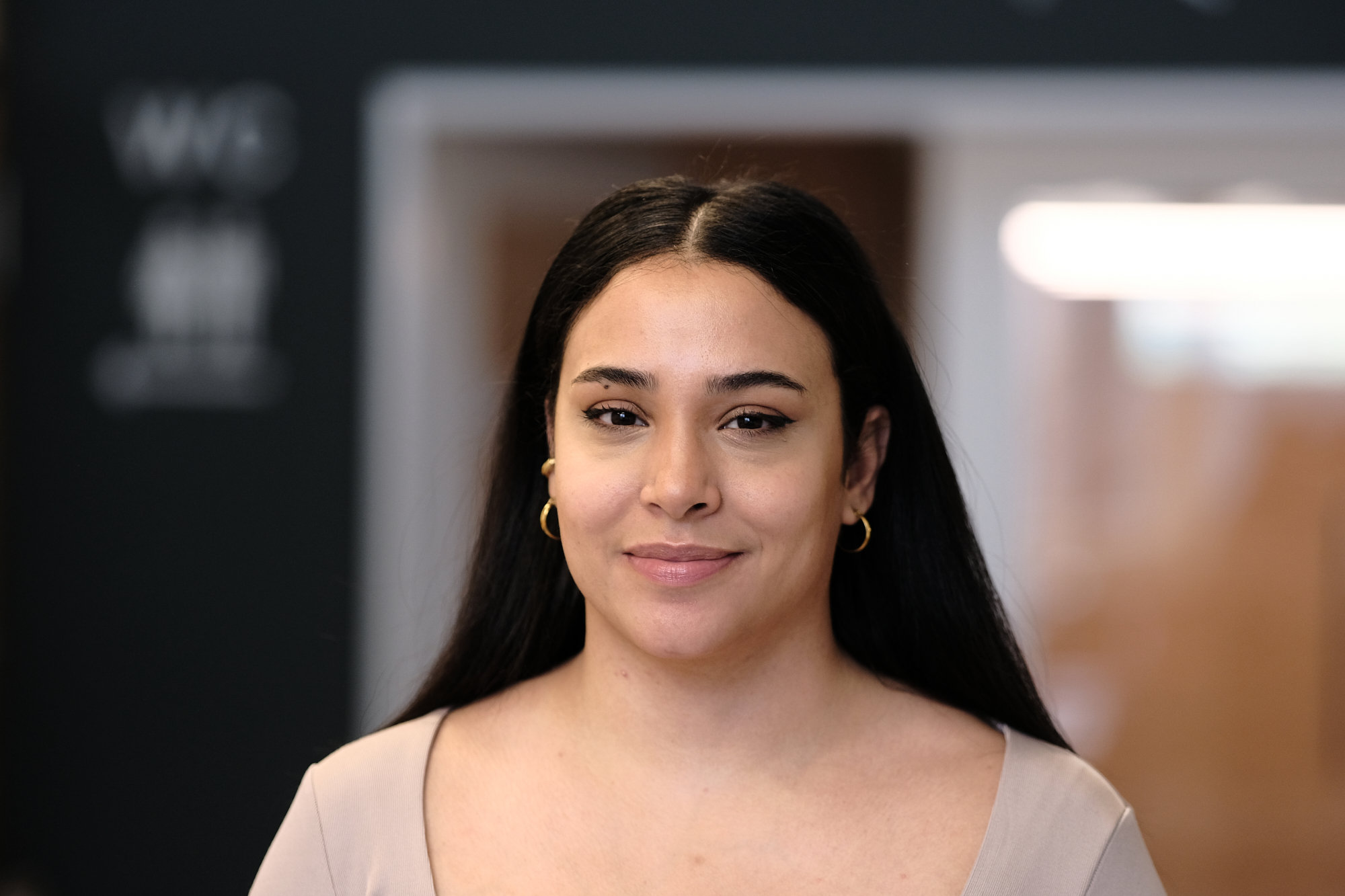
Riham
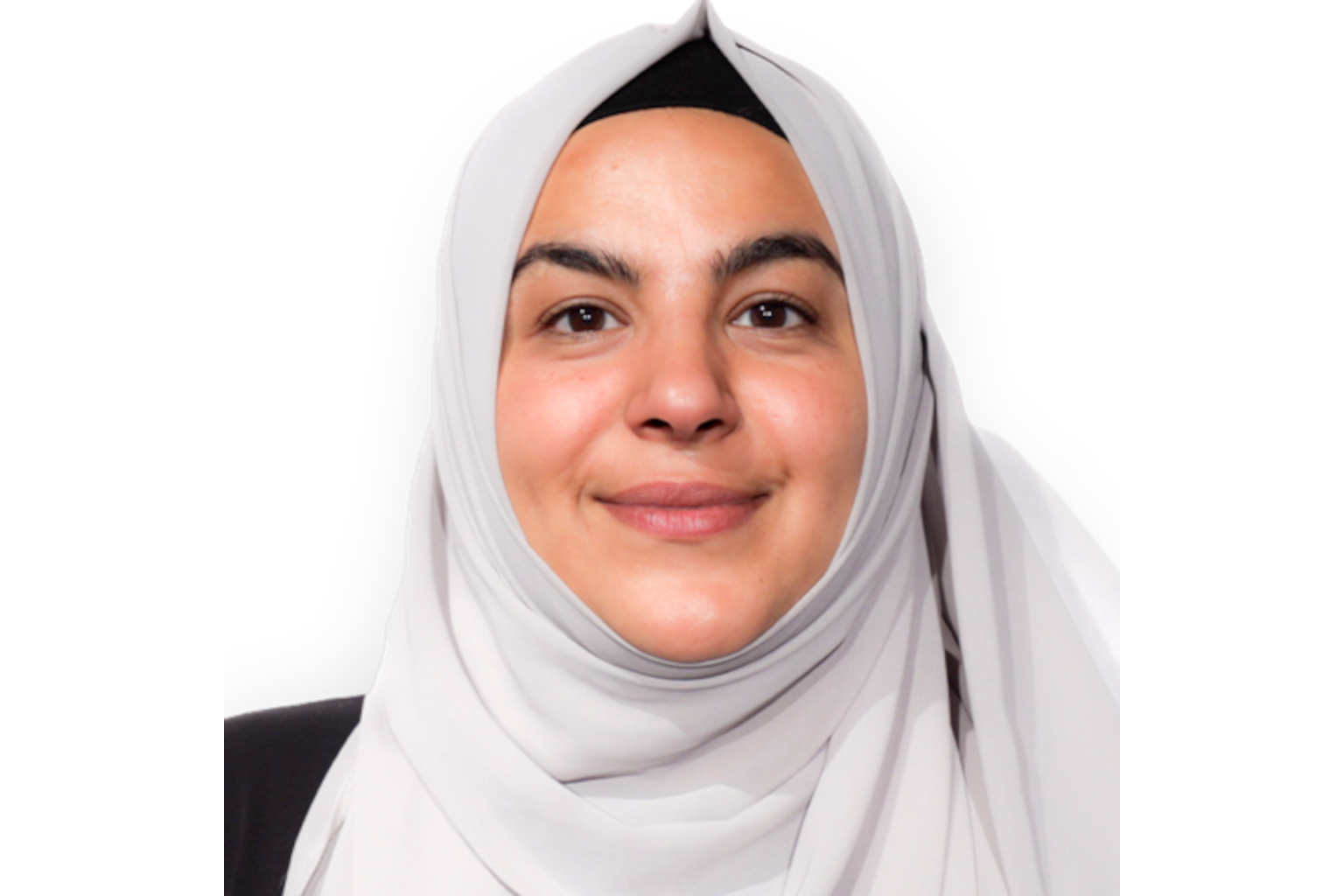
Jasmin
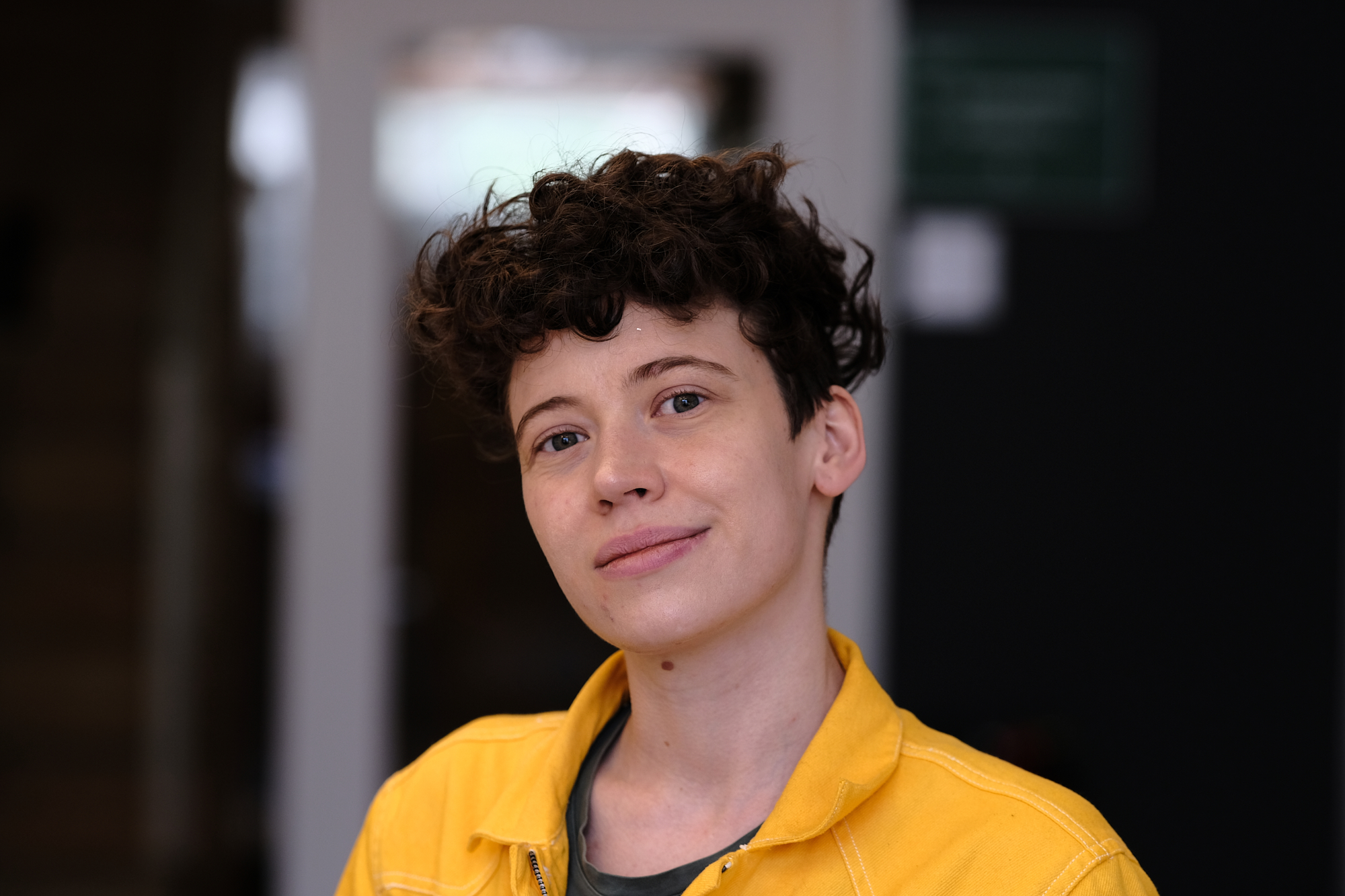
Cin
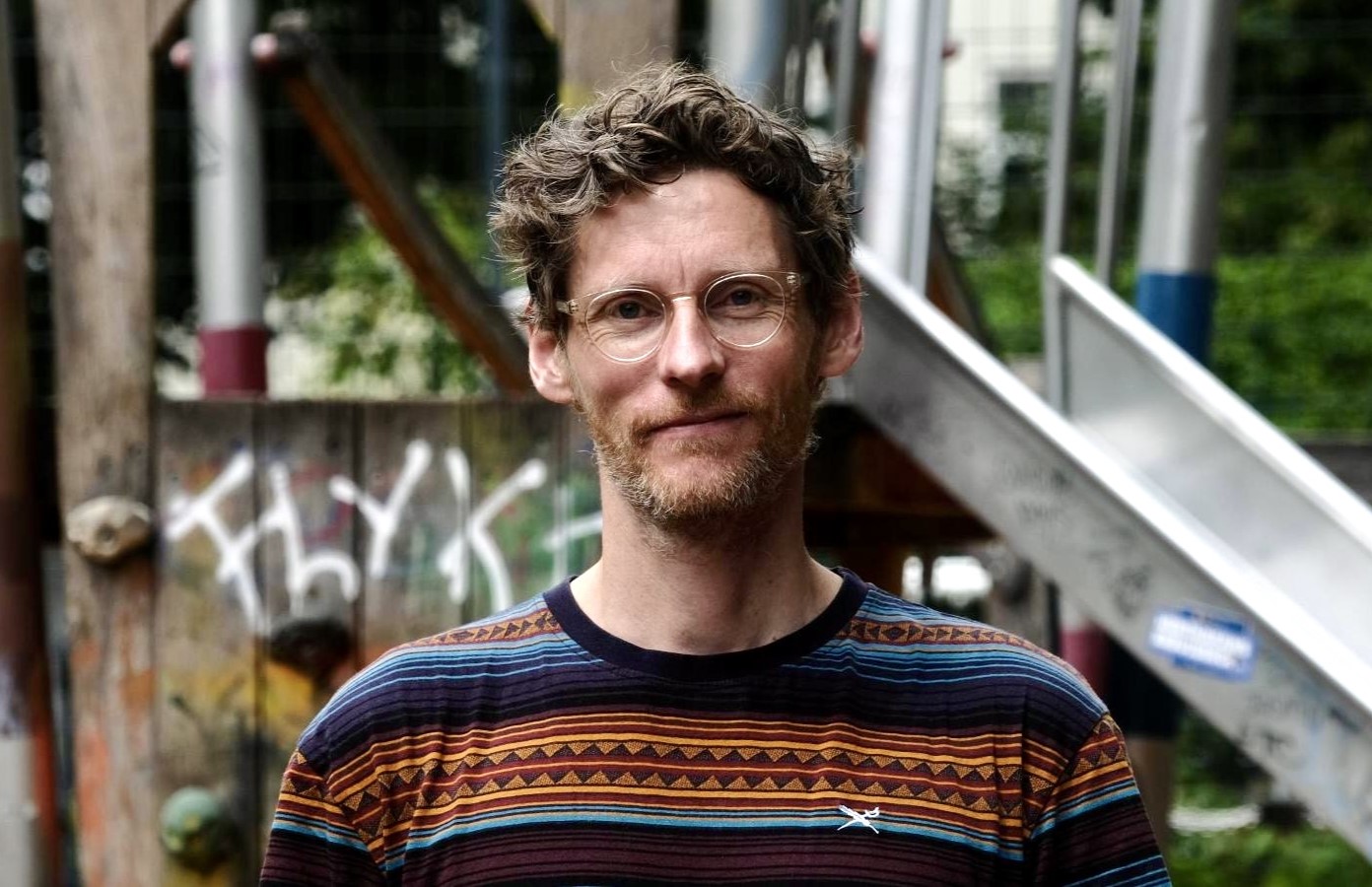
Chris
Contact
E-Mail: reshape@wikimedia.de
Tel.: 030-577116220
Mailing address: re•shape – Ein Wikimedia-Programm zur Förderung von Wissensgerechtigkeit, Wikimedia Deutschland – Gesellschaft zur Förderung Freien Wissens e. V., Tempelhofer Ufer 23-24, 10963 Berlin
Program partners
neue deutsche organisationen – das postmigrantische netzwerk e.V. (ndo)
The ndo is a nationwide network of around 194 charities, organizations and projects. Our members are children and grandchildren of labor migrants and refugees, Sinti and Romani people, the people of the African diaspora, and Jewish, Muslim and other community actors who are looking to engage in dialogue. Some of us refer to ourselves as People of Color (PoC) or Black, ‘hyphenated Germans’ or something else altogether. What connects us: We see ourselves as a post-migrant countermovement against racism and in favor of an inclusive Germany, advocating for more representation and visibility of marginalized groups at all levels of political and societal decision-making.
We want to do something to counteract social division. As a network, we are committed to more visibility, participation and equal opportunities. We do this by engaging in debates or providing a pool of experts for media, politicians, foundations and more. We make our views clear through events, press interviews and position papers:
- We require an inclusive understanding of belonging.
- We want social policies that works for everyone, not
integration politics. - People of Color and Black people must be more present.
- We require radical reforms to the education system.
- Civic engagement must be promoted.”
Wikimedia Deutschland e. V.
Wikimedia Deutschland was founded in 2004 by volunteer Wikipedia community members and is part of a global movement (Wikimedia Movement) which advocates for Free Knowledge. As a charitable organization with over 100,000 members, we have been supporting the creation, collection and dissemination of free content since our inception by supporting volunteers on Wikimedia projects, developing free software, and advocating for equal access to knowledge and education at every level of society. We call the equitable access to knowledge-making Knowledge Equity. There are many technical and social obstacles that we must overcome on the journey to achieving our goal, as well as decision-making processes that need restructuring; to that end, Wikimedia Deutschland wants to devote more of its resources to people whose knowledge is marginalized as a result of barriers and an uneven distribution of power.
-
The Wikimedia Movement
Wikimedia Deutschland is one of several subsidiary organizations of the charitable Wikimedia Foundation, which is headquartered in the USA. We call these organizations chapters. The Wikimedia Movement is made up of a large number of people, chapters, organizations, projects and communities who advocate for Free Knowledge worldwide. Our Movement Strategy 2030 sets out the values, goals and strategic approaches of the Wikimedia movement for the next few years. There are many and various groups within the Wikimedia Movement that are taking different approaches and strategies working in and with marginalized knowledge, such as Whose Knowledge and AfroCrowd.
-
The Wikimedia Projects
When most people hear of Wikimedia for the first time, they think of Wikipedia. Some people even equate the two. In reality, Wikipedia is simply the most well-known of the many Wikimedia projects. But Wikipedia has many other sister projects, such as Wikidata, Wikimedia Commons and Wikisource – all operated by the Wikimedia Foundation. All these projects have one more thing in common: Their content is created and maintained exclusively by volunteers who also shape and manage all governance processes and other aspects of self-organization.
Network Partner
LAMSA e.V.
Landesnetzwerk Migrantenorganisationen Sachsen-Anhalt (LAMSA) e.V. is an association of people with migrant backgrounds in Saxony-Anhalt. As an umbrella organization LAMSA connects people with different origins, cultural backgrounds, languages and religious affiliations, as well as different genders and ages and diverse realities of life. It represents their interests and forms a unity of diversity. LAMSA e.V. represents the political, economic, social and cultural interests of people with migrant backgrounds. It considers itself as their advocate and is available as a point of contact for the state government, all migration policy-relevant associations, institutions and other migrant organizations in other federal states. Currently there are about 110 migrant organizations and persons with migrant backgrounds members of LAMSA.
Migration Lab
The Migration Lab is a network of cultural and educational institutions in the migration society. Together, spaces for thinking, exploration and encounters are created that are dedicated to the pedagogical and artistic mediation of topics relating to the migration society. Through transdisciplinary and multi-perspective cooperation, existing approaches are further developed, strategies are professionalized and concepts are expanded. The Migration Lab wants to pool resources and make them accessible. The focus is on a laboratory concept, which invites people to explore creative ways to develop diverse approaches to the complex phenomena of the migration society. The Migration Lab network currently brings together almost 60 civil society education initiatives, cultural organizations (theaters, museums, etc.), memorials and schools. It also cooperates with European and US partner organizations, including Project Zero at the Harvard Graduate School of Education in Cambridge, USA.
Migrationsrat Berlin e.V.
Migrationsrat Berlin e.V. is an umbrella organization of almost 90 “migrant” self-organizations that are supported by Black People, People of Color and migrants as well as their descendants. The organization campaigns for the rights and interests of migrants and people with a history of migration in Berlin and works to promote their participation in society. In addition to a regional focus on Berlin (and Brandenburg), its work focuses on education, counseling, lobbying, and public relations, in particular on migration policy (including asylum policy), criticism of racism and post-colonial and post-national-socialist remembrance and commemoration – with the respective intersections of gender, age, disability, religion, residence status, sexual orientation and the history and dynamics of East/West Germany.
MOSAIQ e.V.
MOSAIQ e.V. works in a way that is critical of racism and power and gives marginalised voices a platform to intervene in social discourses, question them and redefine them. Our work focuses on topics such as anti-Muslim racism and anti-Black racism as well as their interaction with other forms of discrimination and practices of marginalisation. Strategies and processes of democracy education are also central. Various programmes create places where people can raise questions, think alternatives, develop new ideas and express themselves artistically. The MOSAIQ team and network is broadly based and has different theoretical and methodological expertise and perspectives. We work in a process- and target group-orientated way. Our programmes include Lectures, workshop and seminar design, project concepts, moderation, process support, organisational development & creative writing.
Multikulturelles Forum e.V.
Migrant organization, educational institution, advice center, specialist institution, lobbyist… the Multikulturelle Forum e.V. has many faces. Under the motto ‘Strong through diversity’, we are committed to inclusion, participation and equal opportunities and have more than 100 employees with different backgrounds and skills. We focus on diversity as the reality and potential of a society and pursue ‘empowerment’: we encourage people to develop their personal strengths, support them in consolidating their identity, enable them to determine their own future and help them to demand their rights. We support new organizations and initiatives in increasing their visibility, ability to act and social participation by, for example, helping them to set up an association, professionalizing their accounting or public relations work and enabling them to submit their own project funding applications.
RomaniPhen e.V.
RomaniPhen e.V. is an association of Romnja and Sintizze*. Our approaches are feminist, critical of racism and empowering! We are primarily active in the field of education, knowledge and cultural production. We work in the field of extracurricular, historical and political education, on racism-critical training courses for specialists and multipliers and on the development and dissemination of educational materials.
SUPERRR Lab
SUPERRR is a laboratory for feminist digital futures. We develop visions and projects with the goal to create more equitable futures. We explore the potential of new technologies for society and challenge existing paradigms by bringing new perspectives and stakeholders to the discussion.
Jury
More information about the jury will be added shortly.
Former Advisory Board
We did not develop re•shape – A Wikimedia Program to support knowledge equity alone:
To tailor the program as closely as possible to existing needs, we worked closely with an advisory board in 2022 and 2023. The advisory board was significantly involved in the selection of projects during the first program year.
- Hajdi Barz (she/her) is a founding member of the feminist Romani archive RomaniPhen e.V. She tackles racism and sexism and addresses feminist solidarity, education and empowerment in theory and in practice. Through her engagements in academia, political education and fighting for remembrance and equality, she wants to help raise, highlight and elevate the resources and the beauty of her communities.
- Juliana Kolberg (no pronouns) is Executive Director of Projects at xart splitta e. V. and co-founder of the online platform The Living Archives. Juliana’s areas of focus include the critical interrogation and decolonial empowerment of knowledge (re)production in marginalized communities. Juliana’s expertise also extends to the areas of dis/ability, queerness and intersectionality as a whole.
- Victoria Kure-Wu (she/her) is an expert in user experience design. She builds concepts for digital interfaces between humans and computers. She shares her knowledge in various anti-racist projects and spaces. She is a volunteer Wikipedia author where her activities include being involved in the annual worldwide Asian Month in November.
- During the program’s conception, we were also supported by Zara Rahman as the fourth advisory board member until the end of 2022.


